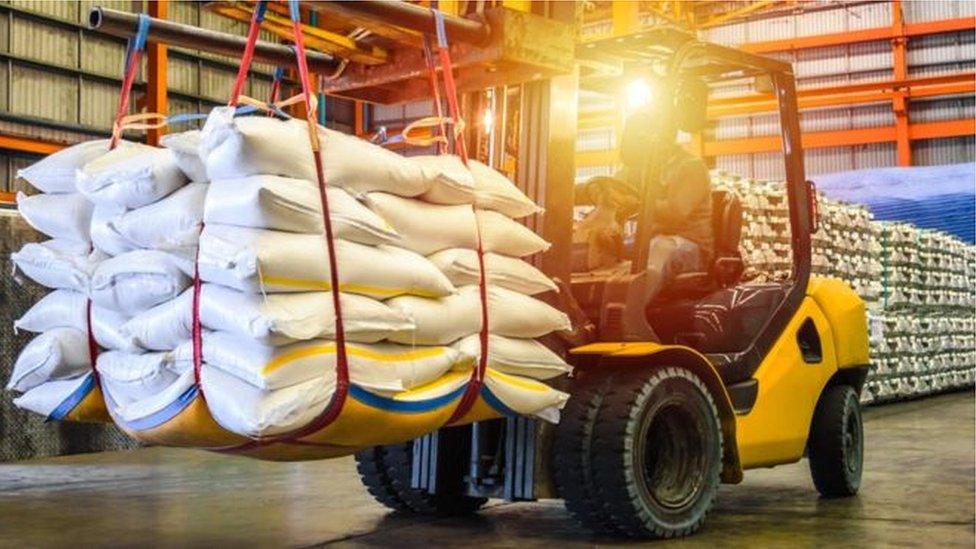Coronavirus: Major flaws monitoring Irish cross-border travellers
- Published
- comments
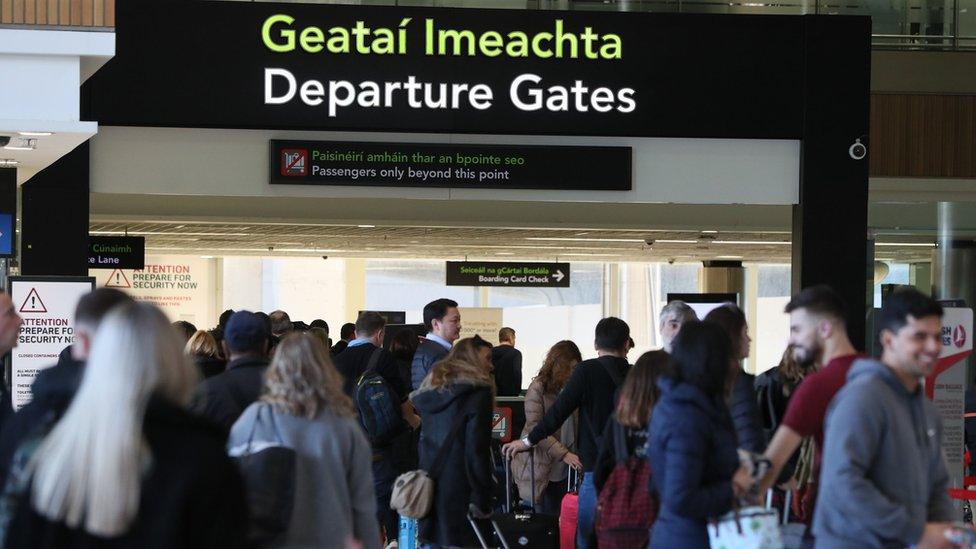
In the letter, Robin Swan told Stephen Donnelly there are "serious impediments" monitoring international visitors required to self-quarantine.
A leaked letter from Health Minister Robin Swann to his counterpart in the Republic of Ireland has exposed major flaws in how visitors from Covid-19 high risk countries are monitored after crossing the border.
It flags up "serious impediments when it comes to enforcing or monitoring" those required to self-quarantine.
Mr Swann said "we have no way of tracing them for spot checks" if they fail to complete a locator form.
He called for a "rapid solution".
The health minister also said closer co-operation between both governments was needed, which could involve new "legislation and data-sharing agreements".
"I believe this would be a significant achievement which would demonstrate our commitment to working together to effectively address common challenges" Mr Swann wrote.
On Friday, the Republic of Ireland's Department of Health said: "Contact tracing continues to be done on an all-island basis, and information shared north and south, as it has been from the beginning of this public health emergency."
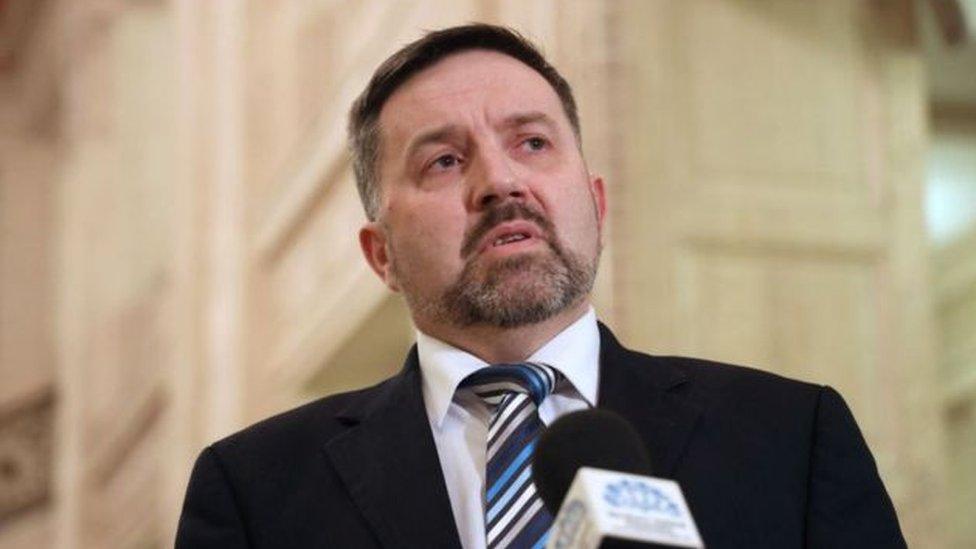
Robin Swann has called for closer co-operation between both governments through new "legislation and data-sharing agreements"
No new coronavirus-related deaths were recorded on either side of the border on Friday.
However, 15 new cases were confirmed in Northern Ireland while 20 new infections were confirmed in the Republic of Ireland.
The Republic of Ireland's death toll stands at 1,763.
The official death toll recorded by NI's Department of Health, based on positive tests, is 556, but when all deaths where Covid-19 was mentioned on the death certificate are included, the toll is 850.
'Serious impediments'
Under the current arrangements, international visitors arriving in the Republic of Ireland before travelling onwards to Northern Ireland must complete a locator form within 48 hours of crossing the border.
They must also self-quarantine for 14 days if arriving from a country assessed as high risk.
But in the letter to Irish Health Minister Stephen Donnelly, Mr Swann wrote: "There are serious impediments when it comes to enforcing or monitoring this at present."
He added: "We are reliant on everyone who has travelled into the Republic of Ireland and then on to Northern Ireland completing our passenger locator form.
"If they fail to do so we have no way of tracing them for spot checks to make sure they are quarantining."
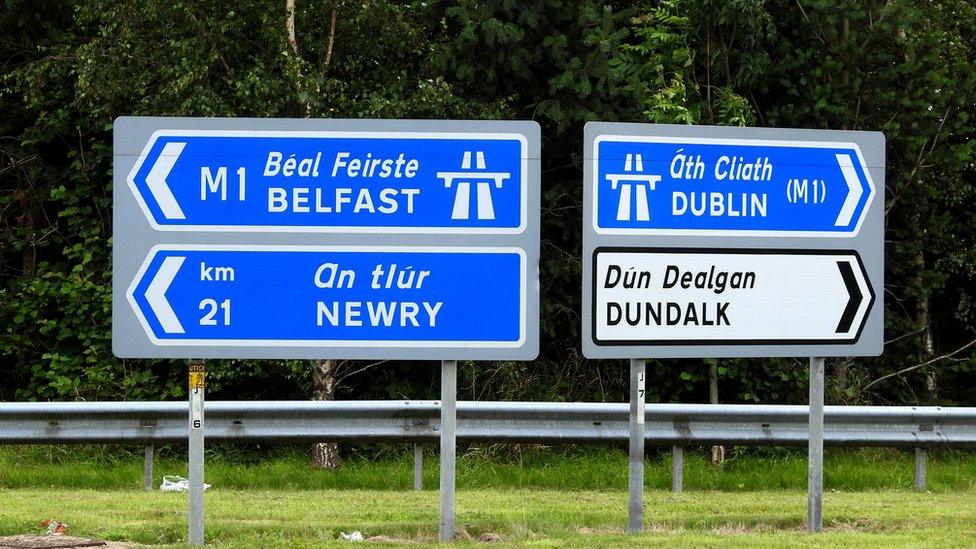
Mr Swann said there was no way to trace people who travel from the Republic into NI if they do not complete a passenger locator form
Mr Swann then suggested the "logical solution" was to ensure all international travellers who arrive on the island provide data "which is accessible for compliance checks in our respective jurisdictions".
Also in the letter, Mr Swann urged his counterpart in Dublin to address with him "the inability" of their jurisdictions to capture and share information about international travellers moving across the border.
The letter was sent at the start of this week.
In its statement on Friday, the Irish Department of Health said the health ministers and public health experts from both jurisdictions "are in close ongoing contact on a broad range of Covid-related issues".
"As part of the cross-government effort here to institute more intensive follow-up with passengers arriving from overseas, including introducing an electronic passenger locator form, consideration is being given to how to further enhance cooperation north-south in regards to overseas travel, including in regards to additional information-sharing," a spokesperson said.
NI First Minister Arlene Foster said the difference in NI and ROI's quarantine rules is something that needs to be addressed.
'Stronger quarantine rules'
Speaking to BBC Good Morning Ulster, she said: "People are arriving on international flights from global destinations and when they come onto the island of Ireland they may spend a few days in Northern Ireland.
"We are concerned they may arrive into Dublin and tour around and not be aware that there are stronger quarantine rules in Northern Ireland."
Mrs Foster said she thinks it is right for the Department of Health to raise concerns.
BBC News NI has also sought a response to the concerns raised in the letter from the Irish government but has yet to receive a response.

Cross-border co-operation could be a big ask
Analysis by Enda McClafferty
It is not every day you get a unionist politician calling for closer co-operation with the Republic but Robin Swann is pushing for just that.
He wants more than just cross-border phone calls, he wants legislation and data-sharing agreements to plug a gap.
But it might be a big ask in a world where data protection trumps all.
This could be a test for the memorandum of understanding between Dublin and Belfast because without names, addresses and phone numbers the tracing teams won't be able to check those who may be considered high risk.
That matters when you recall how the coronavirus first arrived on this side of the border back in February via Dublin airport.
- Published22 July 2020
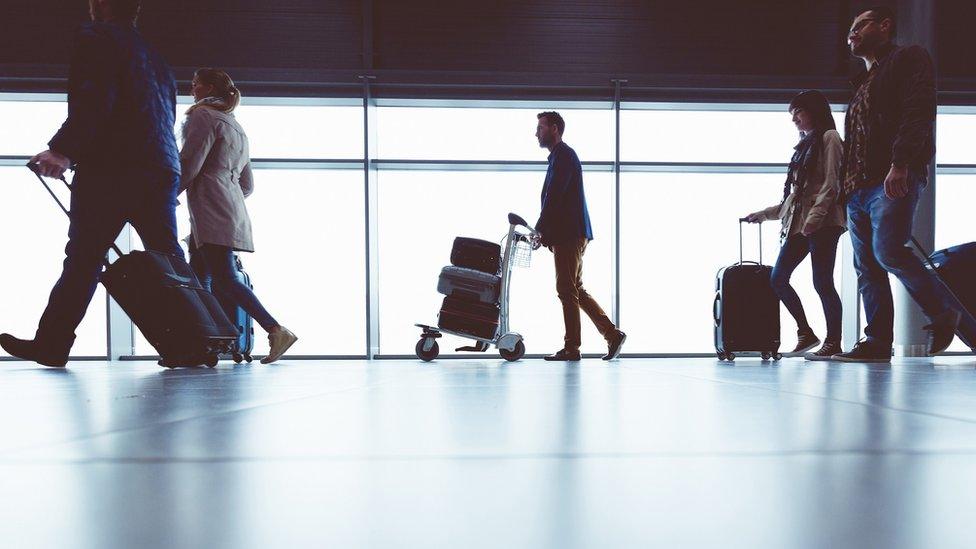
- Published6 July 2020

- Published13 July 2020
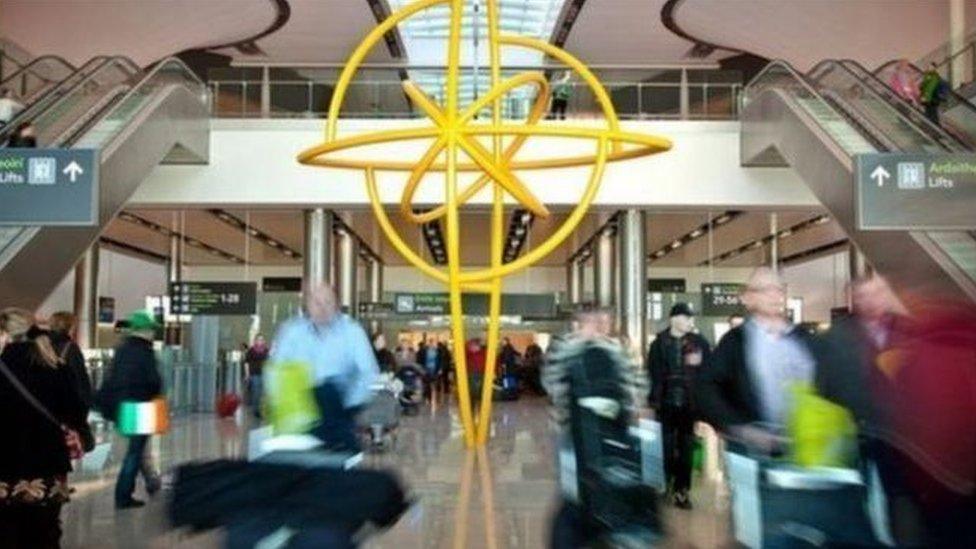
- Published30 April 2020
